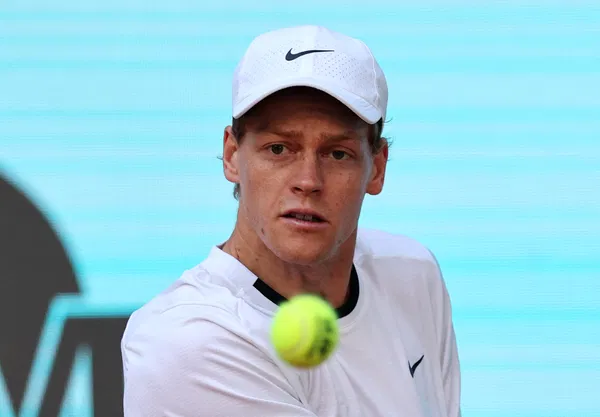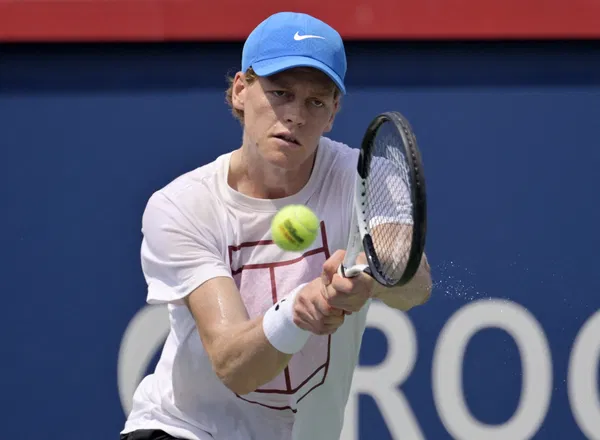
Tennis World Reacts to Jannik Sinner’s Three-Month Ban Amid Controversy
Jannik Sinner was previously cleared of any wrongdoing by an independent panel in March last year, but the World Anti-Doping Agency (WADA) later pursued a suspension of up to two years. After months of deliberation, WADA released a statement on February 15, confirming that Sinner’s ineligibility period would run from February 9, 2025, until May 4, 2025.
In response, Sinner acknowledged his responsibility for his team’s actions and emphasized the importance of WADA’s strict regulations in maintaining the integrity of the sport. Accepting a negotiated three-month suspension, he stated, “On that basis, I have accepted WADA’s offer to resolve these proceedings on the basis of a three-month sanction.”
Mixed Reactions from the Tennis Community
The announcement of Sinner’s ban sparked a heated debate among players, coaches, and analysts. Some expressed frustration with WADA’s handling of the case, while others supported the decision.
A former coach of Serena Williams reacted strongly, calling WADA a “joke” in a social media post. She later elaborated on her views in a podcast, criticizing comments made by players like Nick Kyrgios and Stan Wawrinka, who were highly vocal about the issue. Kyrgios labeled the ban a “sad day for tennis,” claiming that fairness no longer exists in the sport. Wawrinka took an even harsher stance, stating, “I don’t believe in a clean sport anymore.”

However, their stance faced opposition from other figures in tennis. A former Spanish player disagreed with Wawrinka, arguing that the case was clear and that Sinner was not guilty of intentional doping. He pointed out that Sinner accepted responsibility for his team’s error and cooperated with WADA, leading to a reasonable three-month suspension.
During the podcast discussion, further skepticism was raised about the fairness of the ban. It was argued that even a short break from competition could significantly impact a player’s career. The handling of the case was compared to a legal system where individuals might accept a plea deal, not because they are guilty, but to avoid harsher penalties. The podcast host suggested that WADA needed a “win” to assert its authority, leading to Sinner’s punishment despite evidence suggesting he had not engaged in performance-enhancing doping.
More Players and Coaches Weigh In
Several other notable names in tennis also shared their opinions. A former world number one criticized WADA, calling it “the dirtiest organization.” A current top player also took a subtle jab at WADA, questioning its credibility.
Meanwhile, another Grand Slam champion addressed the situation, revealing that many players were dissatisfied with how the case was handled. He noted that discussions within the tennis community suggested favoritism in the ruling.
One player expressed disappointment, stating that the timing of the ban allowed Sinner to return just before a major tournament, possibly giving him an advantage. He suggested that the decision seemed favorable to top-ranked players.
A well-known coach described the case as a “huge scandal,” arguing that the issue was less about Sinner’s innocence or guilt and more about how the anti-doping agency managed the situation. He pointed out that low levels of banned substances are often due to contamination rather than intentional doping. He personally believed Sinner was unlikely to have engaged in doping, given his mindset and work ethic.
A former tennis legend also voiced his support for Sinner after reviewing a statement from a key WADA official.
Ongoing Debate Over Fairness in Anti-Doping Rulings
As reactions continue to pour in, the debate over Sinner’s case highlights broader concerns about anti-doping policies and their implementation. Some believe that his ban was excessive given the circumstances, while others argue that it was lenient compared to past cases. The controversy raises questions about consistency and transparency in the fight against doping in professional sports.
What are your thoughts on Sinner’s three-month suspension? Do you think it was fair, or does it suggest favoritism towards top-ranked players?